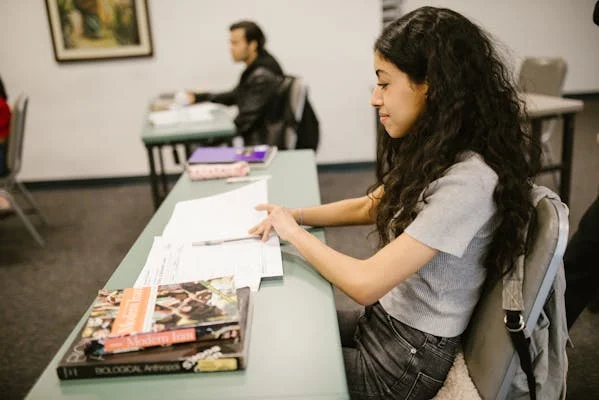In today’s rapidly evolving digital world, media literacy is no longer a luxury but a necessity. As we consume information from various platforms – social media, news outlets, websites, and even advertisements the ability to critically evaluate and analyze this content becomes increasingly crucial. But how does media literacy education benefit everyone? In this article, we will explore the importance of media literacy and the positive impact it has on individuals, society, and democracy.
What is Media Literacy?
Before diving into the benefits, let’s define media literacy. Media literacy refers to the ability to access, analyze, evaluate, and create media in various forms. This includes not only traditional media like television and newspapers but also modern digital media, such as social media platforms, blogs, podcasts, and online videos.
In essence, media literacy empowers individuals to become more discerning consumers and creators of information. It encourages people to ask critical questions like: Who created this content? What is their purpose? What are the biases or perspectives present?
1. Enhances Critical Thinking and Analytical Skills
One of the most significant benefits of media literacy education is its ability to foster critical thinking and analytical skills. In a world where misinformation and fake news are prevalent, the ability to discern fact from fiction is crucial.
Studies have shown that individuals who are media literate are better equipped to question the validity of information they encounter. This could be in the form of news articles, social media posts, or even advertisements. By teaching students and adults alike to ask key questions about the source, purpose, and context of media messages, we can cultivate a more informed and thoughtful public.
Moreover, media literacy education encourages individuals to consider different perspectives. By analyzing media messages from multiple angles, people can develop a deeper understanding of complex issues and make more informed decisions in both their personal and professional lives.
2. Empowers People to Navigate Digital Spaces Safely
As the internet and social media continue to grow, individuals must navigate an increasingly complex digital landscape. Media literacy equips people with the tools to protect themselves online, whether it’s safeguarding their privacy or avoiding harmful content.
Cybersecurity experts recommend media literacy education as an essential part of digital safety. Knowing how to recognize phishing attempts, identify malicious websites, and avoid online scams can significantly reduce the risks associated with digital spaces. Moreover, media literacy education also helps individuals understand the implications of their online behavior. By becoming aware of how personal data is collected and used, individuals can make more conscious choices about their online presence.
3. Promotes Social and Civic Engagement
In a democracy, informed citizens are the backbone of a healthy society. Media literacy education can play a pivotal role in promoting social and civic engagement by equipping individuals with the tools they need to critically evaluate political content and participate in meaningful debates.
When individuals understand how the media shapes political opinions and frames issues, they can better assess the information presented to them. For example, during election cycles, media literacy education can help voters identify biased reporting, misleading advertisements, or false claims. This enables them to make more informed decisions and engage in the political process with a clearer understanding of the issues at hand.
4. Reduces the Spread of Misinformation and Fake News
Perhaps one of the most pressing issues of our time is the proliferation of misinformation and fake news. The rise of social media platforms has made it easier than ever for false information to spread rapidly, influencing public opinion and even inciting violence.
Media literacy education serves as a powerful tool in combating the spread of misinformation. By teaching individuals how to verify sources, check facts, and identify common signs of false information, we can reduce the likelihood of people falling for hoaxes, conspiracy theories, or manipulated media.
Studies suggest that individuals who are media literate are less likely to share fake news or contribute to the spread of misinformation. By promoting critical thinking skills and a deeper understanding of media creation and dissemination, media literacy can help curb the harmful effects of false information.
5. Encourages Diversity of Thought and Empathy
Another vital benefit of media literacy education is its ability to encourage diversity of thought and empathy. In today’s polarized society, it’s easy to find ourselves surrounded by echo chambers—environments where we are only exposed to information that reinforces our existing beliefs. Media literacy education helps break down these barriers by encouraging individuals to explore different viewpoints and consider perspectives they may not have encountered otherwise.
This promotes a more inclusive and empathetic society. By engaging with media that challenges our perspectives, we learn to appreciate different cultures, values, and ideas. This is particularly important in a globalized world where understanding and respecting diversity is crucial for fostering peace and cooperation.
6. Prepares Future Generations for Success
In the modern job market, digital literacy is becoming an increasingly valuable skill. Many careers now require individuals to interact with digital media in various forms, whether it’s managing social media accounts, analyzing data, or creating content for websites and marketing campaigns.
Media literacy education not only prepares individuals to be responsible consumers of media but also empowers them to be creators. By understanding how to craft compelling messages and analyze data, students gain the skills necessary for success in today’s digital workforce.
According to a report by the World Economic Forum, digital literacy is one of the top skills needed for future job opportunities. Media literacy education is an essential component of this digital literacy, preparing students for a wide range of careers in the tech, media, marketing, and communications industries.
7. Strengthens Emotional Intelligence
Media literacy also plays a role in strengthening emotional intelligence (EQ). By examining how media influences emotions and how messages are crafted to elicit specific emotional responses, individuals can become more self-aware and better at managing their own emotions.
For instance, advertisements often target consumers’ emotions to drive sales, while news outlets may emphasize sensational stories to capture attention. Media literacy education helps individuals recognize these emotional triggers and develop a more thoughtful response to the media they consume.
As individuals become more attuned to their emotional reactions to media messages, they can navigate the digital world with greater self-control and awareness. This contributes to better decision-making and more meaningful relationships both online and offline.
Conclusion
Media literacy education is more than just a set of skills it’s a way of thinking critically about the world around us. Whether it’s enhancing critical thinking, promoting civic engagement, or reducing the spread of misinformation, the benefits of media literacy extend to everyone in society. In an age where information is constantly being shared and consumed, the ability to navigate this landscape with awareness and discernment has never been more important. By fostering media literacy in future generations, we empower individuals to take control of their digital lives, engage thoughtfully with the world around them, and contribute to a more informed and empathetic society.
how does media literacy education benefit everyone?





